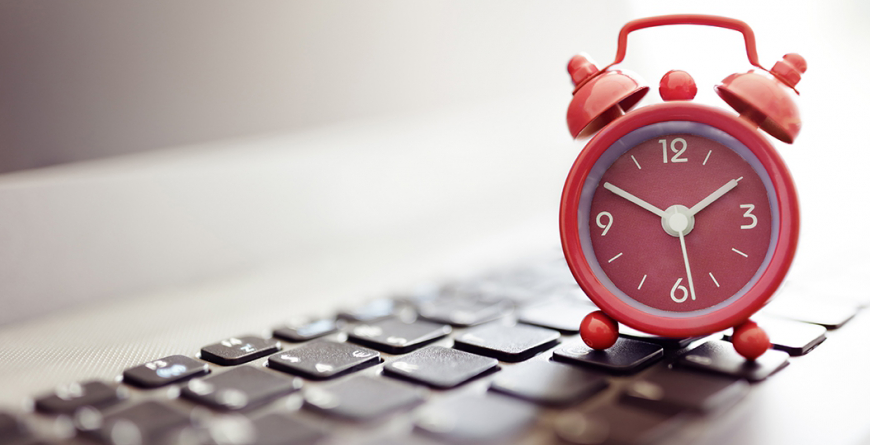
10 Tips for Managing Your Workday
Using time more efficiently is an important skill that everyone from the receptionist to the CEO can learn. Here are 10 tips on how to work smart and be more efficient.
1. Make your morning count
Resist the urge to start your workday by checking your emails. Responding to email first thing sees you reacting to other people’s agendas, rather than working towards achieving your own daily priorities. Delay responding to emails until later in the morning, preferably after you’ve achieved at least one of your own goals for the day.
2. Assess the emotional challenges of your day
Take advice from Mark Twain “Eat a live frog first thing in the morning and nothing worse will happen to you the rest of the day.” First thing each workday morning examine your to-do list. Chances are there are some tasks which are emotionally challenging. These are generally the things you’re delaying. They might include making a difficult phone call; compiling a boring sales report; or some repetitive and menial task that bores you witless. Chances are you’ve assigned them a high priority on your to-do list but instead of getting on with them, you’re checking your Facebook page or making a cup of coffee, or responding to email. Start your day by doing one job, preferably two, which, when complete, will leave you with a sense of job accomplished.
3. Turn off popup notifications on mobile devices and on desktop
Every time a pop up messages appears on your screen, there is the temptation to click on the link. Best not to have them pop up in the first place.
4. Avoid the social media temptation
Unless you use social media as tools to generate business, avoid the temptation to check-in during the workday.
5. Clear your desk
Don’t spend your day looking for documents you’ve buried in a pile of stuff on your desk. Are you stockpiling just in case documents? What are just in case documents?’ They are documents you may never refer: invitations to networking events or training sessions that you wouldn’t mind attending but probably won’t; reports you don’t quite want to throw out in case you need them down the track; in fact anything your keeping just in case. Placing a box under your desk. Drop those just in case documents into the box. Every month drop any content you haven’t needed to retrieve into the paper recycling bin.
6. Purge your post-it note reminders
If your desk is strewn with little paper based notes containing surplus phone numbers and reminders, find yourself a computer application that will store the same information. There are many freebies available.
7. Remove photos
Whilst you’re in the process of decluttering your desk, why not take those framed photos off your desk. Yes, it’s nice to be reminded of those beloved pets and even family, but they are cluttering your workspace. Hang them on your office wall and free up your work space.
8. Adopt a “one-touch” approach
Try the “Do, Delegate, Delete or File” principle for dealing with e-mails, letters, invoices, text messages, voice messages, and other requests.
9. Single task
If you pride yourself on your ability to multi-task, think again. When we multitask we slip between several tasks in rapid succession. Research has shown that it takes more than a few minutes to transition between tasks. In the end we work less efficiently. Focus on the job at hand.
10. Schedule social time at work
Don’t feel guilty about taking some time to socialise at work. A short chat with a workmate contributes to a sense of camaraderie, it reduces the sense of isolation, makes your job enjoyable and reduces the likelihood of burnout. Providing it doesn’t consume your workday, a few minutes social time builds worthwhile networks, creates a sense of team work and contributes to your own well being and that of others. Keep your socialising time short but don’t let the day go by without some friendly chatter.
Need some more time management strategies? We cover much more in the course Time & Priority Management. Feel free to contact us for more info.


